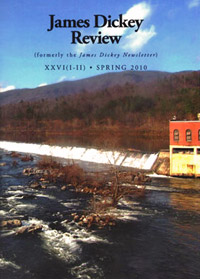Originally appeared in Fall/Winter 2014 issue of James Dickey Review
Review by Terry Cox-Joseph
 Amazing and powerful are the two words that come to mind when reading Half a Man by Bill Glose. Amazing, because he is gifted with the ability to encapsulate the depth of war within sparse sentences, carving out horror with the beauty of words. Powerful because a layperson such as myself can feel the gritty sand between my teeth, experience the invasive percussion of an explosion like a tsunami, visualize the smile and spirit of an Iraqi boy playing street soccer with arms amputated past his elbows.
Amazing and powerful are the two words that come to mind when reading Half a Man by Bill Glose. Amazing, because he is gifted with the ability to encapsulate the depth of war within sparse sentences, carving out horror with the beauty of words. Powerful because a layperson such as myself can feel the gritty sand between my teeth, experience the invasive percussion of an explosion like a tsunami, visualize the smile and spirit of an Iraqi boy playing street soccer with arms amputated past his elbows.In clear and candid free verse, Glose covers politics to weapons to humor to depression and conscience. In �Things to do When You�re Dead,� Glose says, �Recall what it was like / to be young, to lie in a field of clover �/ Listen / to whirring pulse of flies, / give them to your skin to explore / Shiver. Wonder how long / till you dissolve, till / Earth reclaims its loan.� Shiver is what the reader does upon reading this poem. He uses a gun as a metaphor for conscience in �A Clean Tool�: �Your weapon hasn�t fired in days. / Still you clean it, / give yourself / to the task, everything / else shut / out of your mind�/ Scrub soot /from barrel locking lugs. / Brush away sand, / gunpowder, your sins.�
Many of Glose�s titles hold double meanings. In wrestling with the near-impossible task of acclimating to civilian life, a perfect example is found in �Ambush,� where the title alone is a paradox.
The second half of the book deals with adjusting to life back home, and the mundane frustrations and miscommunications that threaten to swallow the meaning of life. Glose is not without humor. �Love and War and Baking� is a fine example. �My Georgia peach mailed / perfume-scented letters / promising sex, love, / and cookies�but mostly sex. / �Reality never lives up / to dream�s potential. /� but the world is big, every turn / a road leading somewhere else. / And of course, there were cookies.�
This work is unique in that so few books of poetry center on the theme of war. Most are, of course, historical and biographical. For those of us who may be short on military terminology Glose includes a glossary. Oddly enough, the glossary adds a layer of cold reality to the anguishing poems that precede it, like a steel door slamming shut on its occupants.
What makes this work a true standout is its quality. It is horrifying and poignant without being maudlin. For example, Glose demonstrates the fine line between following orders and following one�s conscience in �Gathering Intel�: �I didn�t steal family photos / from the dead, but felt / no unease ripping / golden eagled epaulets / from uniforms stained with blood.�
While Glose may have felt like half a man once his American naivet� was obliterated as he stared at the literal remains of half a man in Iraq, in this reader�s view, his raw honesty and integrity make him more than whole. Once you pick up Glose�s book, it will never leave you.